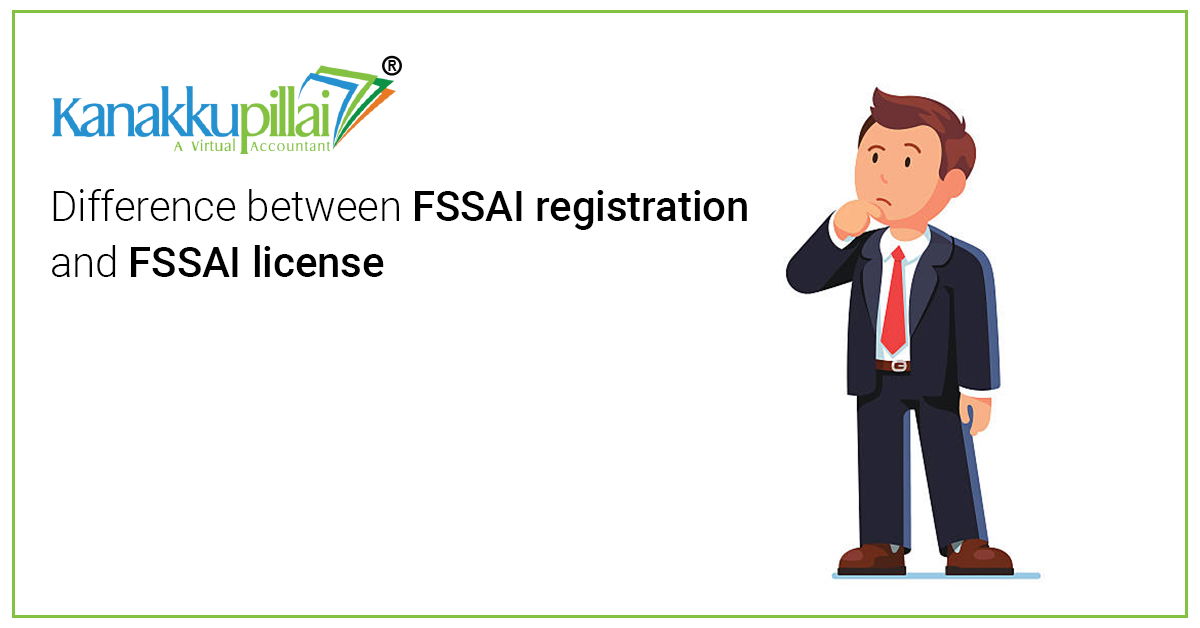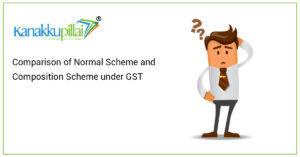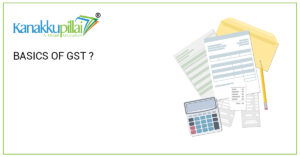![]()
Difference between FSSAI registration and FSSAI license
Any large food business which is manufacturing, processing, transporting and importing food products require central FSSAI license while medium-sized food manufacturers, processor, and transporters need a State License.
Large food manufacturer/processors/transporters and importers of food products require central FSSAI license; it requires state FSSAI license for medium-sized food manufacturers, processor and transporters. The fee and procedure for obtaining an FSSAI license are more extensive when compared to an FSSAI registration.
Businesses having annual turnover above 20 crore can apply for FSSAI central license. Eligible food Business Operators like Importers, Manufacturers, operators in central government, Railways, airports, seaports, etc. need to take a Central FSSAI license from Food Standards and Safety Authority of India.
As per the regulation, all food business operator in India must have an FSSAI registration or license if they are involved in the manufacturing, storage, transportation or distribution of food products. Based on the size and nature of the business, FSSAI registration or FSSAI license may be required.
FSSAI Registration
FSSAI registration is mandatory for all food businesses operating within India, and the basic registration is wholly different from an FSSAI license. Individuals can complete the FSSAI basic registration online by filing a registration form through the Food Licensing and Registration System. Moreover, the FLRS system also enables food business operators to track their application and learn more about updates and changes to laws. Almost 35 states and union territories in India now issue a license or registration certificate online.
The FSSAI registration remains valid for a period between one to five years, depending on the choice of the business owner. Individuals can choose the time frame for their license or registration at the time of application. However, all operators must apply for a renewal at least 30 days before the expiry of their license.
Perpetuating food safety and satisfaction must be the ultimate goal for every food business operator. The government established the Food Safety and Standards Authority of India to help achieve this goal. There are three types of FSSAI registrations that business owners can avail of depending on the nature of their business.
- Central license for large food businesses
- State license for medium food businesses
- Basic registration for small food businesses
Documents Required for FSSAI Registration
- Photo identity proof of the food business operator: ration card, voter ID card, PAN card, driving license, passport, Aadhaar card, senior citizen card, or department issued ID
- List of product categories
- Duly filled and signed Form – B
- Partnership Deed / Certificate of Incorporation / Articles of Association / Memorandum of Association
- Furthermore, proof of address of the business premises: tax receipts, sale deed, rent agreement
- Food safety management system plan
- NOC from the municipality/panchayat, health department
- Source of raw materials
- Duly filled Form IX
- Water test reports
- Import Export Code for businesses that wish to trade internationally
- Equipment list
- List of partners and directors, along with their contact details
FSSAI License
FSSAI is an abbreviation of Food Safety and security Authority of India. It is an agency which is regulated by Indian Government and Ministry of Health and Family Affairs. FSSAI is recognized under food safety and security Act, 2006.
Food Licensing authority has taken action for the food industry to safeguard the food products which are checked in various parameters to ensure the quality of the food and safe for human consumption and result in reducing the cases of adulteration and contamination of food which is sub-standard in quality. Thus, it is mandatory to obtain food license or registration it depends upon location and an annual turnover of the food business operator.
How to apply for FSSAI License?
Who wants to commence food business has to apply for FSSAI state license for this necessary document are required to be submitted.
-> For licensing, he must have an active phone number as well as email id for submission of Form A.
-> Food business operators have to fill accurate details of their respective name in the application as it will appear in the license.
-> After the submission of application then the system will give you a unique reference id which is to be used in every application.
->Next step to the payment of a fee. It can be paid by taking a printout of acknowledgment and online application form and make demand draft from the bank of the specified
What are the documents required for the FSSAI license?
These are the documents required for basic registration:
- Form B – completed and signed
- Photo Identity of FBO
- Proof of possession of premises (eg. Rental Agreement )
- Partnership Deed / Certificate of Incorporation / Articles of Association etc
- List of food products to be dealt with
- Food safety management system plan
Documents required for the state license:
- Form B duly completed and signed
- Plan of the processing unit showing the dimensions and operation-wise area allocation
- List of Directors/ Partners/ Proprietor with address, contact details, and photo ID
- Name and list of equipment and machinery used with the number and installed capacity
- List of food category to be manufactured
- Authority letter from manufacturer nominated a responsible person name and address
- Analysis report of water to be used in the process to confirm the portability
- Proof of possession of premises
- Partnership deed/ affidavit of proprietorship
- NOC and copy of License from the manufacturer
- Copy of certificate obtained under the Coop Act 1861/Multi state Coop Act 2002
- Food safety management system plan or certificate





